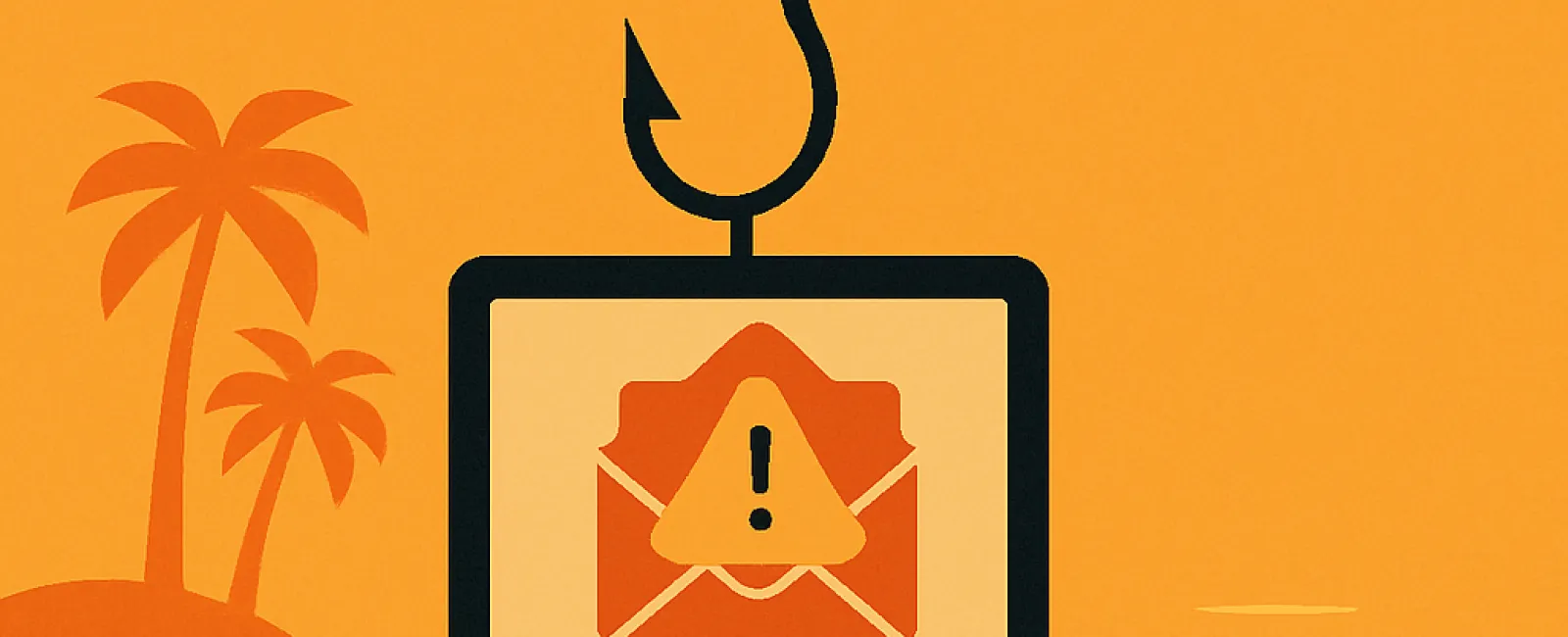August 02, 2025
You and your staff may be easing back into routine after a summer vacation—but cybercriminals? They're just getting warmed up.
At Tech for Senior Living, we monitor cybersecurity threats that directly impact senior living communities in Colorado Springs, CO, and August is one of the riskiest months of the year for phishing. In fact, data shown in studies from vendors ProofPoint and Check Point indicate that phishing attempts
actually spike in the summer months. Here's how to stay aware and stay
protected.
Why
The Increased Risk?
Hackers know when your guard is down.
According to studies from ProofPoint and Check Point, phishing attacks spike during summer, especially in late July through August. Why? Because cybercriminals exploit two things:
1. Summer travel distractions:
Check Point Research reports a 55% increase in new vacation-related websites registered in May 2025 compared to last year. Out of over 39,000 new travel domains, 1 in 21 was flagged as malicious or suspicious—many impersonating familiar hotel or Airbnb brands.
2. Back-to-school chaos:
Scammers send realistic-looking emails posing as colleges or school systems. Even if it doesn't affect your resident population, remember: your med tech might be taking night classes. If they check personal email on a work computer, one accidental click could open a backdoor into your systems.
All it takes is one staff member checking Gmail on the med cart. Boom—compliance risks, ransomware, and family complaints flood your office overnight.
What
To Do About It
While
AI is making cybersecurity stronger and workflows smoother, it's also making
phishing attacks more convincing. That's why it's important to train yourself
and your team on what to look for, to avoid clicking on a malicious link.
Safety
tips to prevent attacks:
·
Keep
an eye out for shady e-mails. Don't
only check for misspellings and poorly formatted sentences in the body of e-mails;
AI can write e-mails for attackers just like it can for you. Also examine the e-mail
address of the sender and the text of the link itself, if visible, to make sure
everything looks legitimate.
·
Double-check
URLs. Misspellings
in the link text or unusual domain endings, like .today or .info, can be an
indicator of an attack. Domain endings like these are often used in scam sites.
·
Visit
websites directly.
It's always better to search for the website yourself, rather than clicking on links
in any messages or e-mails.
·
Enable
Multifactor Authentication (MFA).
Setting up MFA ensures that even if a breach does occur within your company,
your login credentials will remain protected - and so will any data secured
behind them.
·
Be
careful with public WiFi.
If you need to use public WiFi, use a VPN for additional protection when accessing
secure information, like booking portals or bank accounts.
·
Don't
access personal e-mail on company devices. Accessing personal e-mail, messaging or social media
accounts on business devices increases your risk. Keep personal accounts on
your personal devices, and work-related accounts on the work devices.
·
Ask
your MSP about endpoint security.
Endpoint detection and response (EDR) software can monitor your desktops and
mobile devices, detect and block phishing attempts and malicious downloads, and
alert your MSP immediately in the event of a breach, drastically limiting your
data's exposure.
August is Prime Time for Attacks—But You're Not Alone
You shouldn't have to become a cybersecurity expert just to run a senior living facility.
That's where Tech for Senior Living comes in. We provide HIPAA-compliant, senior-living-specific protections for Executive Directors like you who just want tech that works and residents who are smiling—not complaining that "the Wi-Fi's broken again."
Let's take 15 minutes to review your cybersecurity setup.
Click here or call us at 719-510-5869 to schedule your free risk checkup.
We'll walk through what you're doing well, where the gaps are, and what you can do about it—no jargon, no pressure.
Let's make sure the only thing your staff brings back from vacation...
is a tan.
